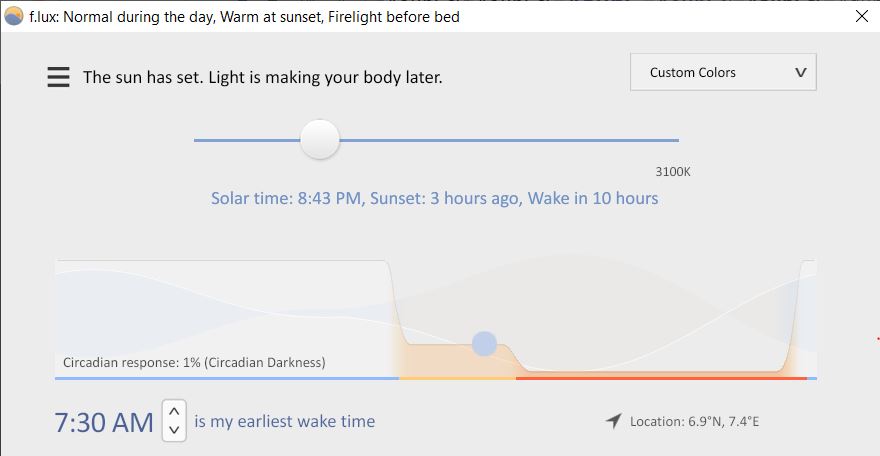Coding is a bit stressful for beginners. Stubborn bugs, coding for extended time without adequate rest and non-correlating learning resources are the primary cause of coding stress amongst developers.
By being aware of common stress triggers, you can apply the much-needed management solution to have a stress-free journey.
You probably are just getting started with coding, and you’re wondering if it’s a stressful job.
Or you’re trying to pick a career choice, at most making plans to learn a new skill relating to programming so you decided to figure out for yourself if this journey is worth embarking on.
The truth is,
Coding is fun but can be stressful, especially when starting out.
If not properly controlled, the stress induced from coding can lead to anxieties, depression and re-occurring burnout.
We’ve surveyed 15,000 developers across different expertise to know the major causes of stress faced by developers when carrying out small, mid-level and advanced projects.
And in this article, I’ll be sharing the findings with you and also proffer possible stress management solutions to these different stress signals.
Lastly, I’ll append a summary of the stress management tips for better retention.
Without further ado, Let’s get started.
1. Stubborn Bugs
Bugs are primarily the cause of coding stress.
These are error or mistake that causes a computer program to misbehave.
Most bugs arise from mistakes and errors made in either a program’s design or its source code.
A few errors are caused by faulty compilers and poor coding practices.
Stress-free Solution
To fix programming bugs, you have to Debug.
Debugging is the process of detecting and removing errors (bugs) within a software code, program or system. It’s a common practice among developers.
No one can completely eradicate the possibility of the occurrence of bugs in codes.
As long as you write codes, you are bound to encounter errors regardless of how skilled you are.

The only way to avoid stress caused by errors is to master the art of debugging.
Here are 9 best debugging tips for stress-free coding.
- Test your code regularly
- Follow best practices
- Don’t ignore compiler warning
- Read error messages
- Separate your code
- Use the internet
- Check documentation
- Seek help from colleagues
- Take a break
When everything seems not to be working, try to get your code seen by another set of eyes.
The error might just be staring right at you but you still won’t notice it, probably because you are already stressed.
Don’t debug when tired; you’ll only end up wasting valuable time.
2. Coding for Extended Time
You must have come across the 10,000-hour skill mastery rule by Malcolm Gladwell.
It says, “the key to achieving world-class expertise in any skill is to a large extent, a matter of practicing the correct way, for a total of around 10,000 hours.”
It’s a mistake to assume that the ten-thousand-hour idea applies in every domain.
You don’t need 10,000 invested hours to be skilled at coding.
This rule has demoralized a lot of programmers, especially in their early days of starting out.
They keep their mind fixed at the 10,000 hours goal.
As a result, they tend to code for a long time beyond their scheduled time frame or assimilation limit and get stressed.

Efficient coding practice isn’t really about the depth of time spent writing or learning codes but rather benchmarked on the individual’s consistency over a given timeframe.
Stress-free Solution
Don’t code for a lengthy period beyond your assimilation rate.
It’s not about the allocated TIME DURATION❌ but CONSISTENCY ✅
Decide how many hours a day you’ll dedicate to coding.
When trying to set out your daily coding time range, remember these key points.
- Coding is a marathon, not a
- Time spent coding is individual-specific.
- Practice as much as you can but don’t be hastily blinded by the 10,000-hour work rule.
3. Multiple and Non-Correlating Learning Resources
Multiple programming tutorials and resources are floating around the web, all competing for your attention and money.
Some of these resources are worth it and but many others are garbage and full of fluff.
A handful of these resources are non-correlating: meaning one can end up learning a lot of things not related to the specified niche.
No knowledge is a waste, but it’s best to pick a coding niche and follow up with the languages involved if you intend to achieve stardom.
Multiple and non-correlating learning resources are one of the major causes of coding stress faced mostly by beginners.

Stress-free Solution
Define your learning path and hand-pick your learning resources.
Not all tutorial videos on YouTube are worth your time.
Most beginners often develop the habit of watching tutorials upon tutorials without the urge to try out projects.
In the programming world, this is termed tutorial hell; try not to be a victim.
Start by researching the languages needed for your coding niche i.e., For web development, learn Html and CSS before heading to JavaScript.
There are various good paid learning platforms designed for this purpose.
Over here, we recommend Team Treehouse and Educative.io.
Stick to the learning outline on these platforms, and once you are done learning the basics, you can then try out various coding projects.
4. Lack of Well-Outlined Learning Plan
Kickstarting your coding career without a written plan or target also causes stress and anxiety.
A developer without a learning plan is like a farmer steadily working without prior plans for the harvesting and planting seasons.
You don’t need something too detailed, just a roadmap indicating how long you want to spend learning a particular tech stack or language.
Stress-free Solution
Define your learning plan and segment the timeframe into weeks and months.
You can use a scheduling app like Calendar.
Don’t make the mistake of picking a general timeline from the internet because what works for others might not work for you.
Coding timelines make more sense when it’s personalized.
5. High Consumption of Caffeinated Drinks
Caffeinated drinks are drinks that contain caffeine, a stimulant that increases attention and alertness.
Developers are known to be large consumers of caffeinated drinks with a large number of addicts.
A study by Developer Media shows that “the average developer consumes the equivalent of anywhere from one to five cups of coffee a day.”
In a bid to stay awake and increase alertness while coding, high consumption of caffeine also causes stress and anxiety.

Stress-free Solution
The moderate caffeine consumption rate is 250 Milligrams per day.
Symptoms of too much caffeine consumption include insomnia, stress, anxiety, nervousness, and rapid heartbeat.
If you are a large consumer of caffeinated drinks and wish to have a stress-free coding experience, then you have to consume less.
You can see more tips on reducing your caffeine intake here.
As a beginner, try not to get addicted to caffeinated drinks.
It’s much easier to control and monitor the level of caffeine intake when you are not addicted.
6. Internal and External Distractions
Distractions also cause coding stress.
It alters your concentration and makes you get tired easily.
Let’s analyze a common case scenario.
You are coding or trying to debug an error, and your phone keeps beeping with all sorts of notifications from Facebook, Gmail, WhatsApp and the likes.
You are attending to every incoming message while coding, gradually getting exhausted, and you feel the cause of the stress is the coding practice.
Little did you know that the only reason you feel stress is because your concentration is divided.
These are all internal distractions and can easily be eliminated.
External distraction arises from noisy environment.
Stress-free Solution
Internal distractions can easily be eliminated by following simple work ethics.
This includes switching off your phone during your designated working period.
If it must be on, then it should be placed on silent or airplane mode.
Even if you’re good at multi-tasking, limiting your attention span to few things will help curb stress.
Also, try to eliminate any form of external distractions if you can.

Most developers often like coding in café or open spaces due to their relaxed and ambient setting.
7. Bad Sitting Posture for Extended Period
I’m pretty sure that 90% of the people reading this article can relate to this type of stress.
Bad sitting posture causes body pain and can drastically alter your work rate.

Stress-free Solution
It will interest you to know that they are chairs properly designed for developers, generally, anyone whose job involves sitting for a lengthy time.
You can get one for your daily usage.
For chairs and any other workspace accessories, I recommend Ergo chair from Autonomous.ai
Their products have high quality with a lot of positive reviews from developers.

If you have just a little cash to spend on accessories, you can get a much cheaper and quality alternative on Amazon.
8. Workspace Congestion
Though not all, many developers reported that congested working table or over-packed room leads to stress.
The ratio of workspace orderliness to users’ concentration varies across individuals.
Just like in high school, some students don’t care how congested their tables are.
They can easily pull out a textbook, place it on any free portion on the table and begin to study.
While others might need a certain degree of orderliness to assimilate properly.
Developers with obsessive-compulsive personality disorder (OCPD) encounter high-level stress signals if the workspace is not perfectly organized.
Stress-free Solution
Decongest your workspace, keeping only useful resources with arms-length and move everything else away.

9. High Expectations
People often overestimate their capabilities when setting goals they intend to achieve.
A beginner once said:
“I’ll spend two months learning Html, CSS and JavaScript. On the 3rd and 4th month, I’ll perfect a technology stack alongside a no-SQL database. By the 5th month, I should be able to build a social media platform with all the features of Facebook and more”.
You be the judge, what do say to this?
I know prodigies do exist amongst us, but I still opine that coding is a marathon, not a sprint.
If it was that easy, every hardworking developer ought to be achieving similar results.
Trying to catch up with such high expectations will ultimately lead to stress and early burnout.
Stress-free Solution
Dream big, aim high but lower your expectations.
Setting achievable but ambitious short-term goals that lead you towards your overall dream of being a good developer will make your programming journey stress-free.
10. Taking up complex tasks too soon
Somewhat similar to the case above.
Taking up high-level roles or projects way beyond your expertise is another stress factor.
Your expertise and experience should be your primary guide when picking up roles and tasks.
You can’t be 5 months into programming and applying for high level-roles like “Senior-Frontend Developer.”
First off, you won’t be onboarded because you don’t have the much-needed experience.
And if you falsify the information on your resume and manipulate your way into the organization thinking you can always learn on the job, then you just signed some stress-inducing death warrant.
Stress-free Solution
Challenging yourself and taking up complex tasks and projects is good and helps you learn faster but always know where to draw the line.
Stay away from coding tasks that are way beyond your expertise.
With consistency and due diligence, you’ll be able to handle such high-level tasks over time but with little or no stress.
11. Improper Work-Life Balance
Work-life balance involves looking at how working people manage time spent at and outside of work.
Time outside of work may include managing relationships, family responsibilities, and other outside interests and hobbies.
For example,
A mum needs to know how best to manage the home, play with her children and also make time for coding.
It’s really not an easy feat.
If these different responsibilities aren’t properly managed, they will overlap and coding will become a stressful practice.

Stress-free Solution
Try to balance every aspect of your life and take proper rest when due.
A good work-life balance means you have harmony between the different aspects of your life.
12. Poor and Inconsistent Library Documentation
Documentations are the essential guide for learning any language.
Unfortunately, some languages have poor documentation and they are almost never updated.
This can be frustrating and stressful for developers utilizing that language as they are often left in a confused state when faced with queries.
Stress-free Solution
Try searching for help from other platforms like YouTube or an updated online video tutorial.
If there’s no such helpful guide on the internet, you have no choice but to switch to another language alternative.
13. Short Deadlines
This doesn’t just apply to coding but every sphere of life.
The great rush to meet deadlines is arguably one of the highest stress-inducing factors among developers.
Stress-free Solution
Early planning can suffice as the solution to projects with short deadlines.
If you work with a team, delegation and proper division of labor can help reduce personal stress.
Nevertheless, If the stated deadline seems too short regardless of early planning and proper task delegation, consider asking for a shift in deadline.
14. Inadequate Rest and Sleep
The human body needs enough rest to function correctly.
Ideally, it’s recommended to sleep for 6 – 8 hours every day.
Stress arises when the individual has an inadequate rest and sleep pattern.

Stress-free Solution
Have a good rest and take breaks in between work.
Quality sleep helps the brain cells to function properly.
Sleeping when tired will help refresh the body and keep you motivated to continue the next day.
15. Long Intervals between Coding Practices
If you leave your code for a long time, it will leave you as well.
Unlike other skills like design using photoshop, you can always understand how you came up with the design regardless of how long you stay away from the app.
Coding is different. If you take long intervals between coding practices, you’ll always find it stressful to pick up from where you stopped.
Stress-free Solution
Avoid long intervals between active practices.
Even if you’re chocked up with other activities, cultivate the habit of regularly glancing at your codes, even if it’s just for a few minutes.
This simple practice will help save you a lot of stress whenever you decide to resume coding.
16. Slow Internet Connection
This is a common problem mostly faced by programmers in under-developed and developing countries.
African countries like Nigeria do have a lot of skilled developers and tech-enthusiasts and the numbers keep increasing rapidly yearly.
Poor internet connectivity makes it difficult to access learning resources which eventually makes coding somewhat stressful.

Stress-free Solution
Have a variety of network carriers so if one happens to lack strong network connectivity, you can easily port to the other.
17. Using a Less Efficient PC
PCs with poor processing capabilities also induce stress on the user.
It doesn’t necessarily mean that you need a PC with high-level specs like 16 gig ram, 1 terabyte SSD storage, Nvidia Graphics.
Coding doesn’t require such a high-specs PC but it’s acceptable if that’s your PC choice.
However, coding requires a system with standard storage, “well-to-do” ram size and processing speed.
Stress-free Solution
Get a PC with standard specifications.
The minimum requirements for coding include:
- Intel Core i5 or i7 processor
- 8GB of RAM
- Full HD resolution, ideally 1920×1080
18. Eye Strain from Extreme Blue Light Exposure
Prolonged exposure to PC screens or monitors can cause eye strain which induces stress.
This is known as the blue light effect.
Apart from being a cause of stress, it’s detrimental and known to have a negative long-term effect on the eyes.
Blue light, also known as high-energy visible (HEV) light, makes up one-third of the visible light spectrum.
Blue light is not bad: our primary source of HEV light is the sun, and HEV light makes the sky look blue. However, our eyes are poor at blocking blue light and staring at computer screens for a prolonged time exposes us to unhealthy amounts of it.
This leads to eye strain which induces stress.
Stress-free Solution
There are two known efficient ways of regulating blue light exposure.
- Use a Blue Light Glass: Blue light exposure from computers and other digital devices can be reduced with a special type of blue light glass.
These are glasses with specially crafted lenses that are said to block or filter out the blue light given off from digital screens.
The lenses claim to protect your eyes from glare and can help reduce potential damage to your retina from prolonged exposure to blue light.

Don’t just get any blue light glass from street vendors; it’s best to visit an optician to know the lens suitable for you.
- Using F.lux to Manage Blue Light Exposure:
F.lux is a cross-platform computer program that adjusts a display’s color temperature according to location and time of day, offering functional respite for the eyes.
The program is designed to reduce eye strain during night-time use, helping to reduce disruption of sleep patterns.

The good part?
F.lux is free to download and supported in Windows, Linux and Mac systems.
You can get it here: F.LUX SOFTWARE
Properly managing prolonged exposure to blue light will mitigate stress caused by eye strain.
Remember the eye is a delicate organ, it should be treated with utmost care.
19. Non-Cooperating Teammates
Nothing more stressful than teammates who don’t cooperate, who don’t share the same vision and who don’t have a common goal.

You certainly won’t achieve much working in such a team and your growth rate will be hindered.
Stress-free Solution
When possible, change your team.
You, for sure, deserve something better.
20. Changing or Adding New Project Features
Some clients are fond of this.
They give you an initial idea of how they want their product designed and what is expected.
You get working and almost at completion, they make an adjustment or change critical features of the product.
Depending on the nature of the adjustment, some might require you to start key aspect of the project all over.
This is not only a stressful process; it is also annoying and time-consuming.
Stress-free Solution
Get your client to define the project/product features before working clearly.

Any adjustment and deviations from the initial plan should be compensated momentarily with an extension in the initial set timeframe of project completion.
SUMMARY OF OUR STRESS MANAGEMENT TIPS
- Avoid multiple and non-correlating learning resources
- Define your learning path
- Get comfortable with the practice of debugging
- Don’t code for a lengthy period beyond your assimilation rate
- Avoid Internal and external distractions
- Monitor your caffeine intake
- Avoid bad sitting posture by using a comfortable chair
- Decongest your workspace
- Lower your expectations when getting started.
- Stay away from tasks that are way beyond your expertise
- Balance your work-life ratio
- Avoid languages with poor and inconsistent language documentation.
- Early planning and proper task delegation can help you complete projects with short deadlines
- Have adequate rest and sleep
- Avoid long intervals between active coding practices
- Have a variety of network carriers of you often face slow internet connectivity
- Use an efficient PC for coding
- Get a blue light glass to avoid eye strain
- Avoid teams that don’t share a common vision and goal.
- Get your client to define the product features before embarking on the project.
And it’s a wrap✨
Hope you enjoyed this guide?
Do well to share it with your friends so they can also enjoy a stress-free programming journey.








0 Comments